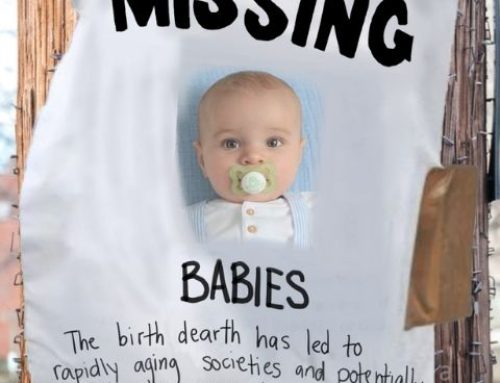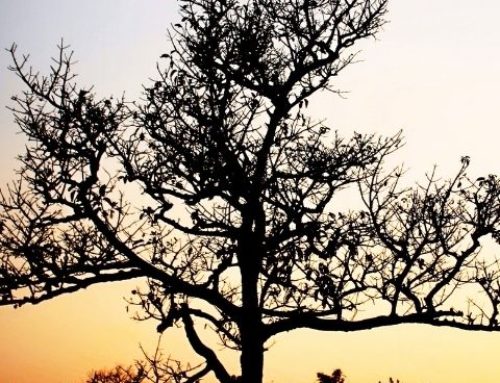 During Remembrance Day solemnities in more recent years, we are frequently reminded that World War II was fought to safeguard “freedom and democracy in Canada.” We rarely hear anymore of the defense of Western civilization, or of Christian civilization, with which the Allied rhetoric of World War II was suffused at the time it was occurring (as in one of Winston Churchill’s more famous speeches given at the time of the Blitz).
During Remembrance Day solemnities in more recent years, we are frequently reminded that World War II was fought to safeguard “freedom and democracy in Canada.” We rarely hear anymore of the defense of Western civilization, or of Christian civilization, with which the Allied rhetoric of World War II was suffused at the time it was occurring (as in one of Winston Churchill’s more famous speeches given at the time of the Blitz).
Indeed, in most of the education system today, young people are none-too-subtly inculcated with notions that Western civilization, Imperial Britain, and, indeed, traditional Canada, were little more than repositories for loathsome racism, sexism, and homophobia, which we are now in the process of happily overcoming and consigning to the dustbin of history. Indeed, history is virtually not taught at all, except as the narratives of various sectoral victimological groups, that are now fully justified in clamouring to destroy what remains of the traditional West. Today, there are indeed multifarious techniques for rendering nearly all of Western civilization to appear as utterly hideous to so-called “decent” human sensibilities.
It’s quite clear that Canada’s dominant elites have decided that if one is a traditionalist, a social conservative, or a sincerely-believing Christian, one simply doesn’t “fit in” to today’s Toronto, Ontario, or Canada. Vast societal efforts and resources have been directed to ensure that trying to be a societally significant social conservative in Canada “will be made impossible.”
What about freedom? On the one hand, we are awash in a debased “North American” pop-culture that appeals to the lowest passions and instincts. This is said to be the acme of real and total freedom. On the other hand, there is the tight imposition of the strictures of “political correctness” — especially in the intellectual, journalistic, literary, and artistic spheres. There is, indeed, a profound lack of a politically responsible and reflective freedom that would find expression in constructive political and social activities.
What about democracy? How can one even speak of democracy when looking at the pop-culture-driven and consumerist existence of most people? How can one speak of democracy when the mass media and mass education system strive mightily to condition people in a pre-set direction, with a startling degree of unidirectional intensity? One could argue that the current-day reality of society is the managerial-therapeutic regime, characterized by a soulless, corporate Right, and a “politically-correct” Left. Much of the surface-level politics of current-day society consists of a “pseudo-dialectic of opposition” between outlooks that are both crassly materialist, highly reductionistic, and completely soulless.
One would think that the more reflective among Canadian World War II veterans still alive today feel a sense of unease and disquiet about the directions in which Canada has gone, especially in the aftermath of the 1960s. I would especially like to mention Richard Field, who served as an artilleryman during the war, and is now a pugnacious blogger, having earlier made an attempt to found an activist group called the Voice of Canadians. If there had been more veterans like him, perhaps the slide in Canadian political, social, and cultural developments would have been less pronounced. Among the multifarious tragedies of war may be that the bravest, most courageous, and most determined men tend to die on the battlefield.
Perhaps a few words should be added about the current Canadian engagement in Afghanistan. Indeed, Canadians are strenuously engaged in “nation-building” in Afghanistan while the last remnants of traditional Canada are disappearing at home. Fighting in such a war takes enormous psychic reserves of willpower, courage, and fortitude. It is considerably more psychologically difficult for Canadian soldiers than during World War II. It’s probably best for the soldiers not to delve too deeply as to what is going on “the home front.” Nevertheless, the absurdities of “political correctness” intrude willy-nilly, as in the scandal-mongering over the Afghan ‘detainees.’
One of the more famous quotes of George Orwell (which I first came across in well-known film critic Richard Grenier’s review of the Australian film Breaker Morant) is simply: “Never mock the uniforms that guard you while you sleep.” As Grenier had written, civilization itself continues to exist because a handful of rough-and-ready men are willing to defend it.
One way of honouring Canadian soldiers is to carefully and respectfully study the military history – and indeed all of the history – of Canada. We should remember one of Orwell’s most famous lines: “He who controls the past, controls the present. He who controls the present, controls the future.”
Insofar as virtually the whole past is now being presented to us by the currently dominant elites as an unremitting nightmare, it is difficult to argue for the salutary aspects of that past one would wish to preserve, such as its pro-family and pro-life outlooks.




